I’ve seen exit polls that told an ambiguous, complicated story. This year’s exit polls are in the opposite category. They tell a pretty clear story about why Donald Trump won a race which all the experts (including me) expected him to lose: independent voters took a calculated risk for change in a contest between two candidates who they thought flunked the character test.
For those who (like me) worry about Trump’s dark, quasi-authoritarian brand of populism and his apparent contempt for constitutionally ordered government, the polls offer a hint of solace, at least about the public if not necessarily about the president-elect. This election was a hail-Mary pass for change, not an ideological statement or an endorsement of Trump’s dark vision.
Here’s the case, in six propositions.
• Trump’s base didn’t win it for him. Trump rallied Republican partisans and locked up whites without college degrees, but there weren’t enough of those to win the race.
Evidence: Republicans and non-college whites each made up only about a third of the electorate, and there’s considerable overlap between the two groups.
• Trump won because independents broke late for him.
Evidence: Independents made up about a third of the electorate, and Trump won them by six points. He won late-deciding voters by five points, whereas among early deciders, Clinton narrowly won.
• Independents chose change over qualifications. That is, they understood that Clinton is (much) better equipped to be president, but they cared more about change and decided Trump is an acceptable risk.
Evidence: 52 percent said Clinton is qualified to be president, versus only 38 percent for Trump. On temperament to be president, Clinton beat Trump by a whopping 20 points. But qualifications and temperament weren’t what voters most wanted: 39 percent said “can bring change” is the most important candidate quality, far ahead of “right experience” (21 percent) or “good judgment” (20 percent).
• Change voters want better outcomes. They decided change trumps qualifications (pun unintended) because they believe the economy is rotten and the country is going in the wrong direction, and they didn’t think more of the same would fix either problem.
Evidence: Voters thought the economy’s condition is “not good” or “poor” by a margin of almost two to one. The same is true for country’s being on the wrong versus right track.
• The email scandal proved fatal to Clinton, because it neutralized corruption and character issues that could have tipped the scales against Trump. With corruption off the table, voters were free to weigh change versus experience—the calculus which proved decisive for Trump.
Evidence: The two candidates effectively tied on whether they’re “honest and trustworthy”: 61 percent said Clinton isn’t, and 63 percent said Trump isn’t. Similarly, 63 percent are bothered by Clinton’s use of private email, not far behind the 70 percent bothered by Trump’s treatment of women.
• Thus, this was not an ideological election. It was not an endorsement of Trump’s dark vision or authoritarian tendencies—and certainly not of his character. Rather, it was a hail-Mary pass for change: a call to shake things up and produce better outcomes.
The implication is just as Trump implied in his victory speech, when he said “We have to do a great job”: he’d better perform, or it’s curtains, and soon.
The Brookings Institution is committed to quality, independence, and impact.
We are supported by a diverse array of funders. In line with our values and policies, each Brookings publication represents the sole views of its author(s).


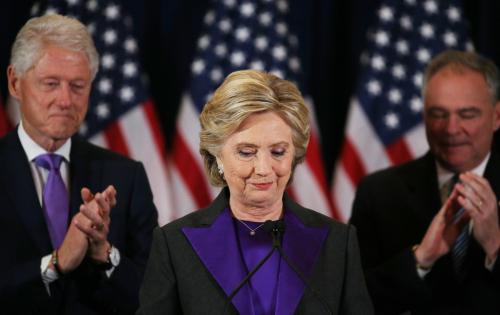
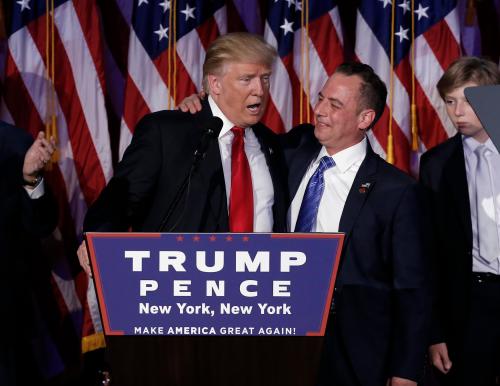
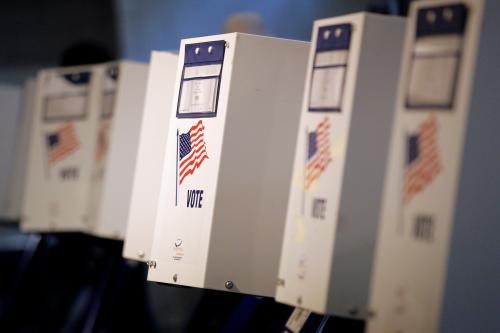
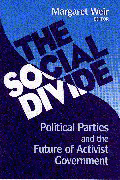
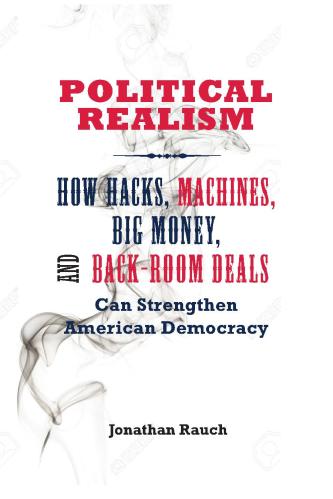
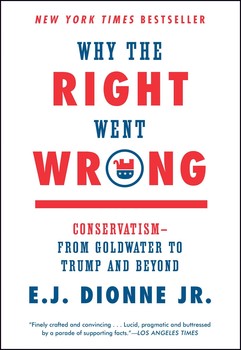



Commentary
Voters want change, not ideology
November 9, 2016